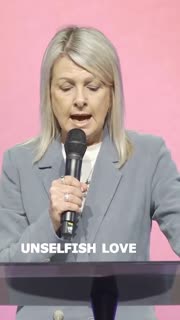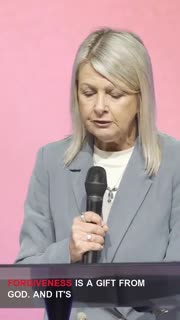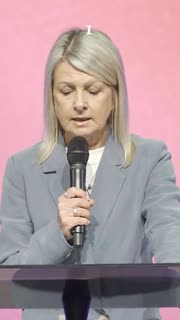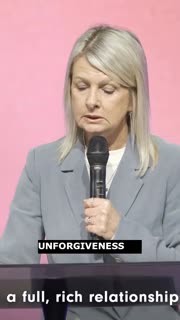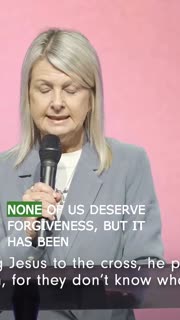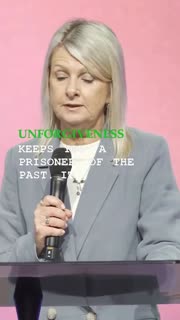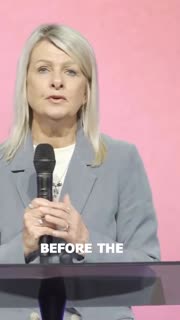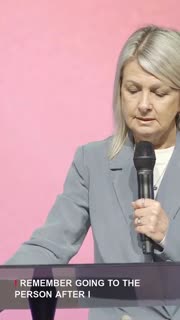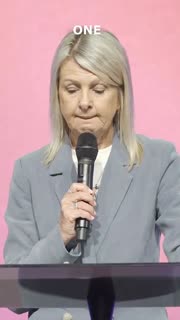Embracing Forgiveness: The Path to Freedom and Healing
Devotional
Sermon Summary
Bible Study Guide
Sermon Clips
### Quotes for outreach
1. "Unselfish love is the basis for forgiveness. It's the kind of love that keeps no record. It is an unconditional love. A love that doesn't have strings attached. And you and I are here today as recipients of that no record keeping kind of love that holds no record against our sins. Forgiveness is the lavish love given to us by God through the selfless love and life of Jesus." [03:04] (44 seconds)
2. "Forgiveness is a gift from God. And it's a gift for us. And it's for our benefit. It's not just a catchy phrase. It's actually for our benefit so that we can live freely the way God intended us to live. So another question, is God's power, love, mercy and grace in and through our lives? Or is the power of our feelings, our will, something that is leading us when it comes to forgiveness?" [09:28] (41 seconds)
3. "I once heard someone say that drinking, holding onto unforgiveness towards someone is like you drinking poison and hoping the other person dies. And that leads to the second point. Why forgiveness? Because unforgiveness is like a disease. It's like a poison. It erodes away at our heart. The disease of bitterness, the disease of torture, the disease of anger, the disease of resentment, and it eats away at us." [19:10] (47 seconds)
4. "When we hold unforgiveness in our heart, it stands between us and God. It alienates from full, rich relationship from God. It stands between us and God, not us. It stands between us and the person, but us and God, which could be ourselves. That will stand between you and God as well. If you still carry shame, regret, can't forgive yourself, you need to let go of that forgiveness to really embrace the forgiveness and mercy and freedom that God has to offer you." [24:43] (40 seconds)
5. "None of us deserve forgiveness, but it has been lavishly given to us. We often hear Pastor Paul say, when we talk about how our salvation has been given freely, and he said, yes, on one hand, that is true. But on the other hand, it was very costly to Jesus. So that's why forgive, but how? How do we forgive? There's just two simple points today. They're not easy, but they're freeing. And there's no way around it. We need to decide. We need to decide. We can't rely on our feelings to dictate. It's a matter of our will to forgive." [27:57] (61 seconds)
### Quotes for members
1. "Unforgiveness keeps you a prisoner of the past. It doesn't keep the other person a prisoner. It keeps you and I a prisoner. And the reality is we are the prisoners of unforgiveness, not the person we have not forgiven. Whether that be ourself, which is a biggie. So many people I've met over my lifetime just have not been able to forgive themselves for what they've done. Regretful, ashamed. But forgiveness releases. Releases us." [12:33] (41 seconds)
2. "When we stand before the cross, which is, the ultimate forgiveness for each and every one of us, we cannot hold unforgiveness in our heart. When we stand before God and we stand before the cross and have experienced this forgiveness for our life, it would be hypocritical of us to not be able to release unforgiveness. Jesus of all people, he understands us. He understands pain. He understands, betrayal. He understands injustice. He understands heartache firsthand. He doesn't just read about it. He actually went through it. But in all of that, he left it at the cross for our freedom." [26:41] (56 seconds)
3. "I remember going to the person after I became a Christian that had interfered with me as a young girl who caused a lot of damage in my life, in my heart. And I went to tell them, I forgive you. I'd like to say the story ended with us embracing and tiptoeing through the tulips. Well, that didn't happen. What did happen was they didn't acknowledge the way that I had hoped they would, my forgiveness. But the important thing was, as I stood there, was that my heart was free. That I wasn't a prisoner anymore to the consequences that I've had to outwork and had to outwork in my life because of what had been done to me." [22:47] (60 seconds)
4. "One of the things I had to do when I came to Jesus was forgive myself. I had to own my stuff and forgive myself. Whether it was I could have had a victim mentality or that was because. No, I had to own my stuff. If I wanted to be free from being a prisoner of my past, I had to own my stuff, forgive myself. And then the stuff that was put on me through other people, I had to surrender to Jesus because we're the ones that hold God at a distance when we hold onto unforgiveness in our heart." [26:08] (43 seconds)
5. "Jesus needed an angel of heaven to come and strengthen Him and help Him to surrender. He can give us the same help today as we surrender our will to His when it comes to forgiveness. The team are going to just minister to us and I'm just going to pray. And as they do, let's just do a sila. Say, God, is there anything? Is there anything? Is there anything in me? Whether it's unforgiveness toward yourself, you're living with shame, guilt, whether you're mad at God and holding onto unforgiveness because of something God didn't do for you that you think He should have done, or whether it's unforgiveness toward others for what's happened to you." [30:13] (53 seconds)
Ask a question about this sermon
1. "Unselfish love is the basis for forgiveness. It's the kind of love that keeps no record. It is an unconditional love. A love that doesn't have strings attached. And you and I are here today as recipients of that no record keeping kind of love that holds no record against our sins. Forgiveness is the lavish love given to us by God through the selfless love and life of Jesus." [03:04] (44 seconds)
2. "Forgiveness is a gift from God. And it's a gift for us. And it's for our benefit. It's not just a catchy phrase. It's actually for our benefit so that we can live freely the way God intended us to live. So another question, is God's power, love, mercy and grace in and through our lives? Or is the power of our feelings, our will, something that is leading us when it comes to forgiveness?" [09:28] (41 seconds)
3. "I once heard someone say that drinking, holding onto unforgiveness towards someone is like you drinking poison and hoping the other person dies. And that leads to the second point. Why forgiveness? Because unforgiveness is like a disease. It's like a poison. It erodes away at our heart. The disease of bitterness, the disease of torture, the disease of anger, the disease of resentment, and it eats away at us." [19:10] (47 seconds)
4. "When we hold unforgiveness in our heart, it stands between us and God. It alienates from full, rich relationship from God. It stands between us and God, not us. It stands between us and the person, but us and God, which could be ourselves. That will stand between you and God as well. If you still carry shame, regret, can't forgive yourself, you need to let go of that forgiveness to really embrace the forgiveness and mercy and freedom that God has to offer you." [24:43] (40 seconds)
5. "None of us deserve forgiveness, but it has been lavishly given to us. We often hear Pastor Paul say, when we talk about how our salvation has been given freely, and he said, yes, on one hand, that is true. But on the other hand, it was very costly to Jesus. So that's why forgive, but how? How do we forgive? There's just two simple points today. They're not easy, but they're freeing. And there's no way around it. We need to decide. We need to decide. We can't rely on our feelings to dictate. It's a matter of our will to forgive." [27:57] (61 seconds)
### Quotes for members
1. "Unforgiveness keeps you a prisoner of the past. It doesn't keep the other person a prisoner. It keeps you and I a prisoner. And the reality is we are the prisoners of unforgiveness, not the person we have not forgiven. Whether that be ourself, which is a biggie. So many people I've met over my lifetime just have not been able to forgive themselves for what they've done. Regretful, ashamed. But forgiveness releases. Releases us." [12:33] (41 seconds)
2. "When we stand before the cross, which is, the ultimate forgiveness for each and every one of us, we cannot hold unforgiveness in our heart. When we stand before God and we stand before the cross and have experienced this forgiveness for our life, it would be hypocritical of us to not be able to release unforgiveness. Jesus of all people, he understands us. He understands pain. He understands, betrayal. He understands injustice. He understands heartache firsthand. He doesn't just read about it. He actually went through it. But in all of that, he left it at the cross for our freedom." [26:41] (56 seconds)
3. "I remember going to the person after I became a Christian that had interfered with me as a young girl who caused a lot of damage in my life, in my heart. And I went to tell them, I forgive you. I'd like to say the story ended with us embracing and tiptoeing through the tulips. Well, that didn't happen. What did happen was they didn't acknowledge the way that I had hoped they would, my forgiveness. But the important thing was, as I stood there, was that my heart was free. That I wasn't a prisoner anymore to the consequences that I've had to outwork and had to outwork in my life because of what had been done to me." [22:47] (60 seconds)
4. "One of the things I had to do when I came to Jesus was forgive myself. I had to own my stuff and forgive myself. Whether it was I could have had a victim mentality or that was because. No, I had to own my stuff. If I wanted to be free from being a prisoner of my past, I had to own my stuff, forgive myself. And then the stuff that was put on me through other people, I had to surrender to Jesus because we're the ones that hold God at a distance when we hold onto unforgiveness in our heart." [26:08] (43 seconds)
5. "Jesus needed an angel of heaven to come and strengthen Him and help Him to surrender. He can give us the same help today as we surrender our will to His when it comes to forgiveness. The team are going to just minister to us and I'm just going to pray. And as they do, let's just do a sila. Say, God, is there anything? Is there anything? Is there anything in me? Whether it's unforgiveness toward yourself, you're living with shame, guilt, whether you're mad at God and holding onto unforgiveness because of something God didn't do for you that you think He should have done, or whether it's unforgiveness toward others for what's happened to you." [30:13] (53 seconds)
